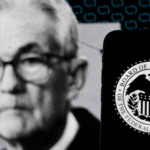A significant development is unfolding in the cryptocurrency regulatory landscape as Coinbase takes a stand against state-level enforcement actions targeting it. The cryptocurrency exchange is urging the U.S. Department of Justice (DOJ) to intervene, following the federal regulators’ withdrawal from an earlier lawsuit against the company. This request comes in a 14-page letter from Coinbase’s Chief Legal Officer, Paul Grewal, detailing the company’s position on the challenges posed by state enforcement in an environment where federal oversight appears lacking.
In his letter, Grewal emphasizes the urgent need for federal action to address what he describes as a system breakdown. He advocates for Congress to implement broad preemption provisions that would prevent individual states from enforcing regulations that conflict with federal law. “When Oregon can sue us for services that are legal under federal law, something’s broken,” he stated, characterizing the current situation as a troubling misuse of governmental authority rather than a proper display of federalism.
The backdrop to this controversy is an April lawsuit brought by Oregon Attorney General Dan Rayfield, who has accused Coinbase of selling unregistered securities within the state. This claim mirrors allegations previously stated in a federal case initiated by the Securities and Exchange Commission (SEC). Following the SEC’s decision to drop its lawsuit against Coinbase in February, several other states, such as Vermont, South Carolina, and Kentucky, followed suit by abandoning their own cases against the exchange.
According to Rayfield, states must act to fill the enforcement void left by federal regulators, which he claims have been receding from active cases under the current administration. In response to Rayfield’s lawsuit, Coinbase has sought to transfer the case to a federal court and initiated its own litigation against Oregon’s governor, Tina Kotek. This internal lawsuit alleges procedural irregularities surrounding the state’s shift in policy towards cryptocurrency, asserting that such changes occurred without public scrutiny or legislative debate. A status check hearing for this case is scheduled for October 29.
Amid these legal battles, significant legislative efforts are underway in the U.S. Senate. Lawmakers are preparing to vote on a bill that aims to define a comprehensive market structure for digital assets. This proposed legislation intends to clarify the roles of the SEC and the Commodity Futures Trading Commission (CFTC) in regulating cryptocurrencies.
In his letter to the DOJ, Grewal suggests that the Department should formally recommend to Congress the adoption of stringent preemption measures within any forthcoming market-structure legislation. He calls for such provisions to characterize federally regulated digital assets as exempt from state blue-sky laws and to establish that new state licensing and regulatory requirements will not pertain to cryptocurrency intermediaries.
Although Coinbase is not currently embroiled in any active federal litigation, the company remains vigilant. Recently, it filed a motion regarding a Freedom of Information Act request tied to communications from former SEC Chair Gary Gensler. This effort appears geared towards uncovering information about the SEC’s rationale behind its actions against cryptocurrency enterprises concerning alleged securities violations.
As these developments continue to unfold, stakeholders within the cryptocurrency space are keenly observing the implications of Coinbase’s legal maneuvers and the forthcoming decisions from both state and federal entities. The tension between state regulations and federal oversight could significantly reshape the regulatory environment for digital assets, influencing how companies operate and comply in this rapidly evolving sector.







